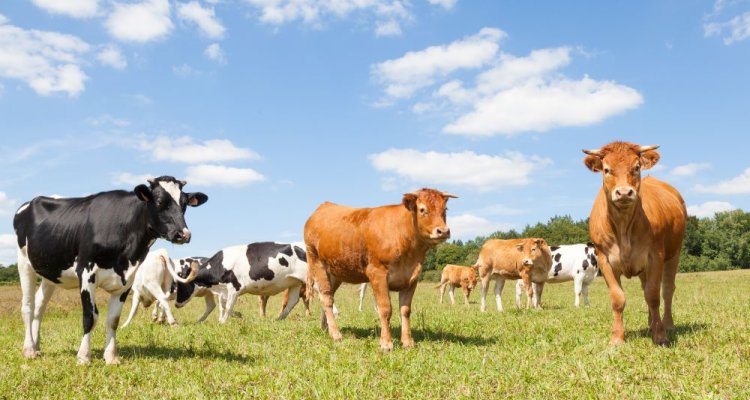
News
Update on the Global Livestock Genetics and Genomics Programme selecting for Reduced Methane Emissions in Ruminants
In December 2023 Prof. Roel Veerkamp of Wageningen University & Research, Animal Breeding and Genomics (WUR-ABG) took on the leadership role of a global programme to coordinate and accelerate worldwide efforts to breed cattle with reduced methane output.
Now, a few months into the future, we’re talking to the key players Roel Veerkamp and Birgit Gredler-Grandl to learn about the current status and progression of the project.
This project is the largest-ever globally coordinated funding investment in livestock methane mitigation research. Can you explain why a global programme is necessary?
“Effectivity of genomic selection depends highly on the scale of recording, that is, the number of animals in the reference population with recorded CH4 emission, pedigree and genotypes,” says Roel. “There is a risk that only major breeds and commercial organisations in rich countries have the resources to collect sufficient records. In addition, even in most rich countries there might be too little data collection for a reference population large enough for effective and continuous breeding programmes, thereby limiting the impact of breeding programmes. The only way to accelerate genetic progress and implement breeding strategies across the globe, both in developed and less developed regions, is through a global approach.”
Which area(s) are you currently working on? Can you share some preliminary results of your efforts?
“We started in 2024 by developing a structure and clear aims for the programme,” says Birgit. “The overall aim is to accelerate genetic progress in methane reduction in ruminants, achieved by sharing protocols and data in the public domain, enhance methane recording and data collection, develop breeding programmes and ensure implementation of routine genetic evaluations. An important first step was to initiate a network of researchers. We talked to a 100 researchers from all over the world interested in the field of methane genetics. We have established six working groups with focus on dairy and beef cattle, small ruminants, Africa, Asia and South America. The working groups are encouraged to identify gaps and needs in their current field and develop research proposals to overcome those and accelerate genetic progress in methane emissions.”
“A lot is already happening,” Roel adds. “Several countries have research projects in place, and the aim is to leverage those by, for example, expanding phenotyping efforts. The start of the programme has been well perceived by the scientific community, and the first proposals contributing to the programme are close to completion. Proposals will be evaluated for funding by coordinators of the WUR-ABG Global Genetics Programme and the Global Methane Hub.”
The only way to accelerate genetic progress and implement breeding strategies across the globe, both in developed and less developed regions, is through a global approach
What were some of the highlights during the first few months?
“A highlight is definitely the development of a global database for methane emission phenotypes,” says Birgit. “Accurate breeding values for lower methane emissions require large reference populations with several thousands of phenotyped animals. The Global Genetics Program, together with ICAR and other groups with experience in this field, aims to develop a global database to enhance and facilitate easy and fair data sharing and utilisation across countries. We are currently working on the best strategy, platform and data sharing model. We don't aim to re-invent the wheel, but rather bundle existing expertise in the field for a global model.”